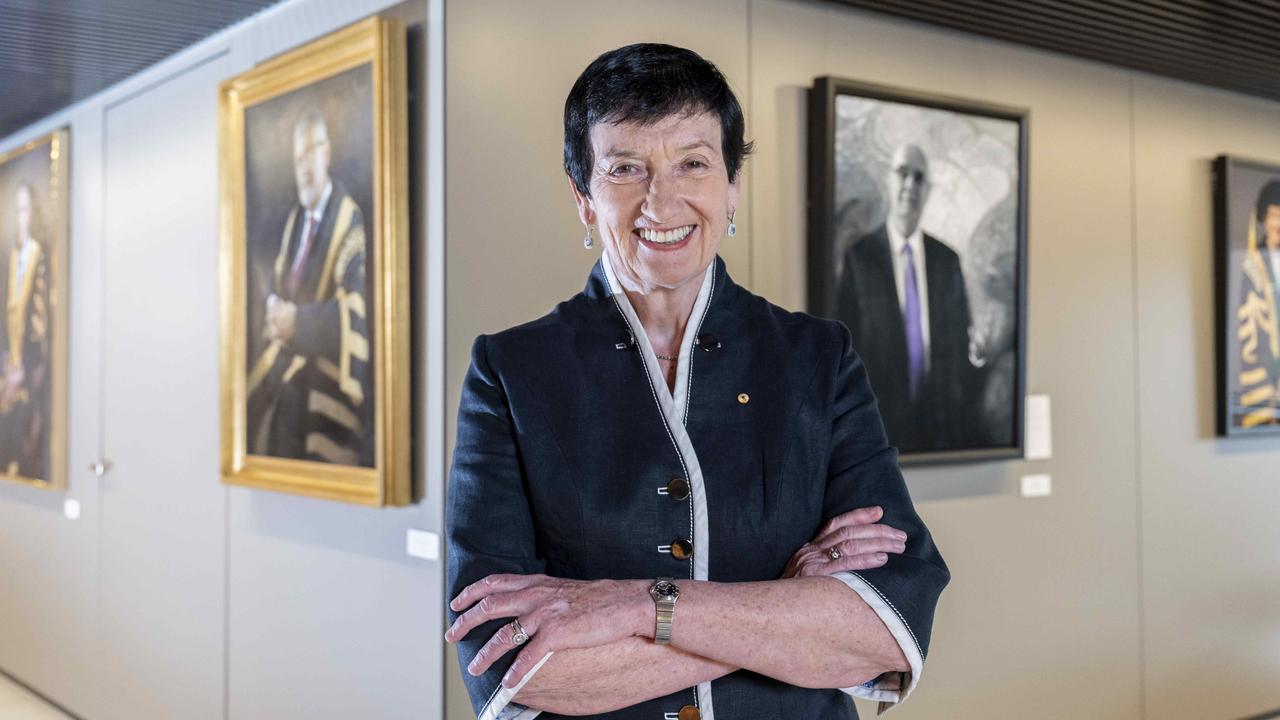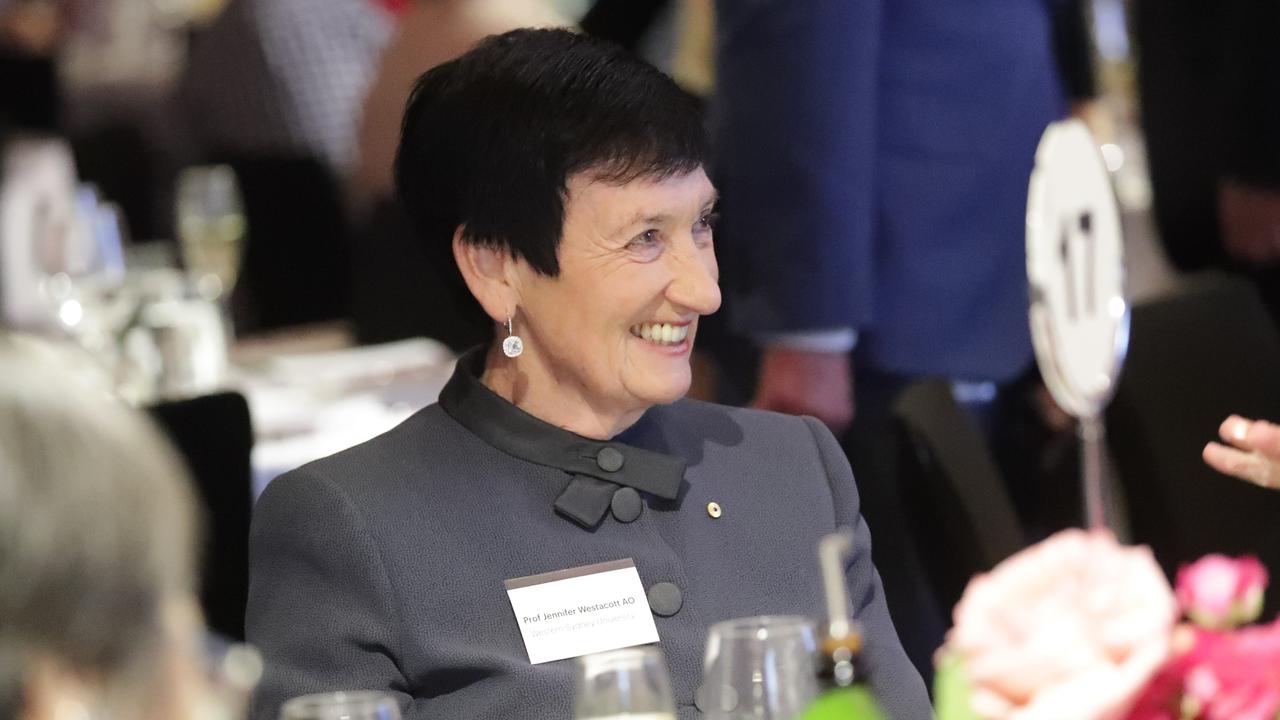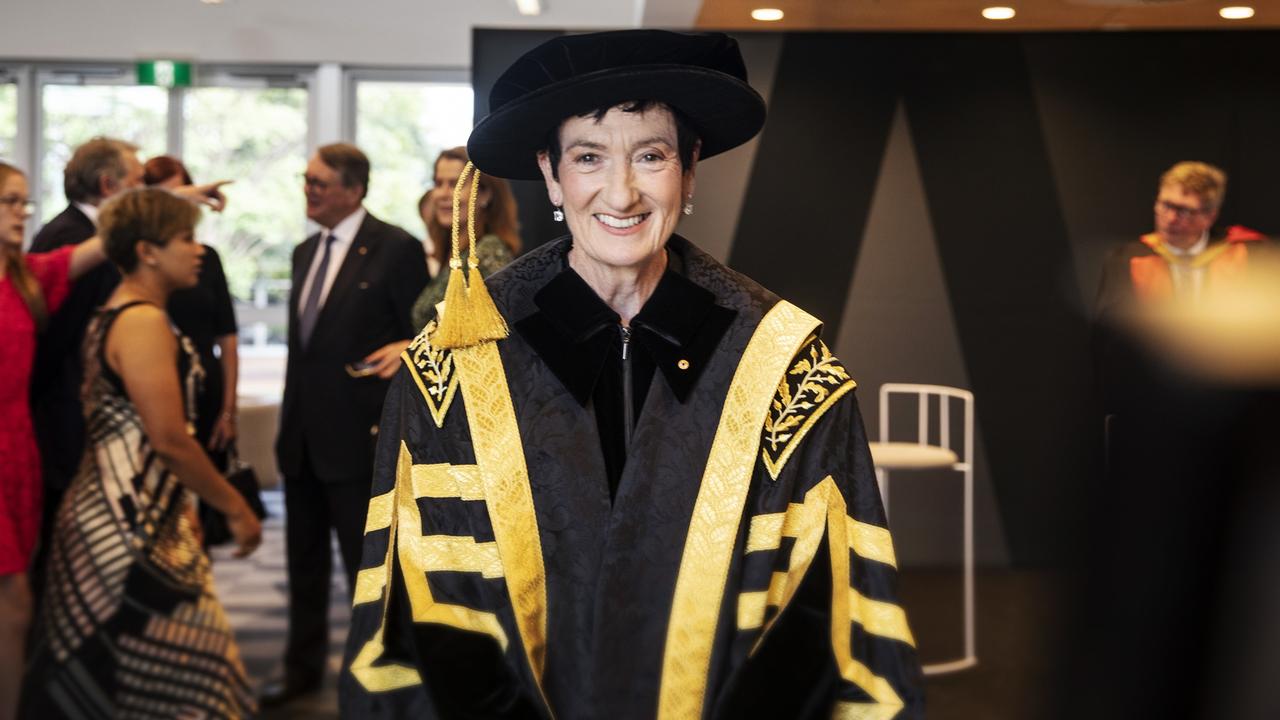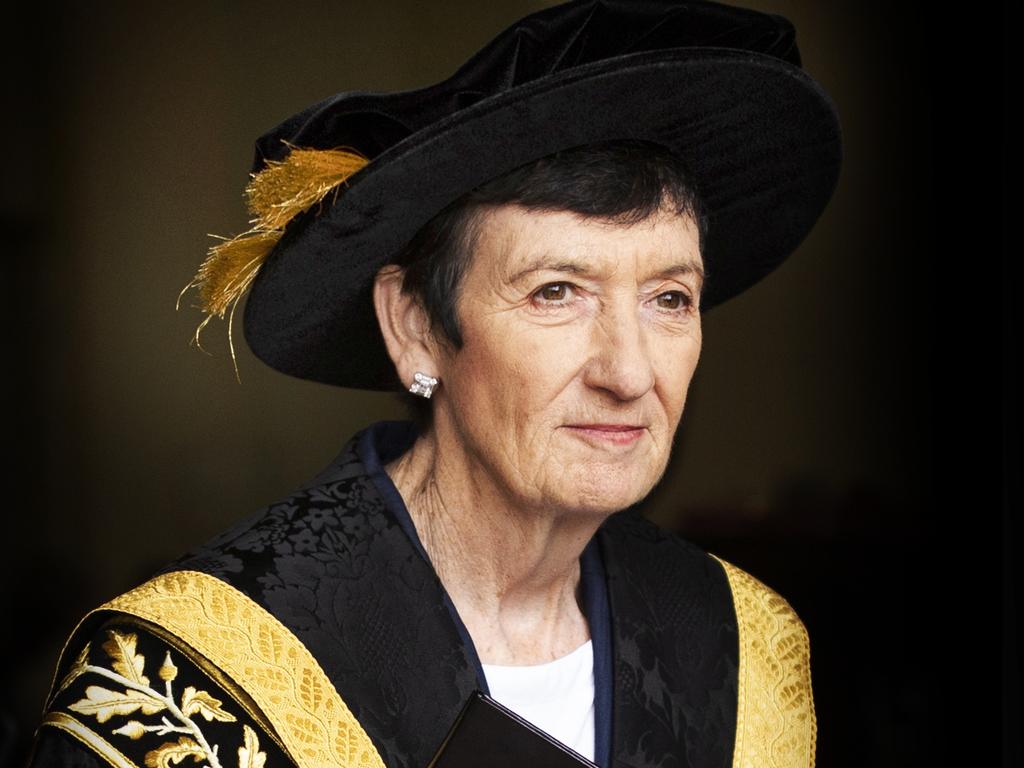We take Pride Week for granted now, but Jennifer Westacott faced a different world


Of course I knew what the answer would be: Of course.
Anyone who worked in corporate Australia, or in the public sector as Westacott did for many years, knows how difficult it was for any gay person to “bring their whole self to work” until recently.
In a week when the NSW government accepted all 19 recommendations from an inquiry into the state’s historical LGBT hate crimes, it’s worth remembering what a long road it has been for many gay Australians, irrespective of their power and personality, to feel truly at ease at work.
Westacott, who is now the Chancellor of the University of Western Sydney, was this week honoured by the Sydney Women’s Fund for her leadership.
She used the platform to reflect on her own tough childhood (and to call for more policy attention to be paid to the Australians who are “grinding” out their lives) and the public sector career that helped shape her before her time at the BCA.

She didn’t mention it, but in an interview ahead of her address to the fund, I wondered how during her stellar career she had navigated the homophobia that sat just below the surface in many workplaces in the 1980s and 1990s.
Those were the decades when some gay men (and it was more usually men at a time as women were rarely seen in corporate ranks) understood intuitively that they would never make it to CEO because of their sexual preference. That those fears seem alien in today’s workplaces is a mark of the dramatic social change in the past 20 years or so.
This is what Westacott told me about being gay back in the day:
“When I was in the public service, it was a source of anxiety for me because people were not comfortable with it, it was not open, and it was not out there, and it was something that people just skirted around.
“For example, no one would ever ask me what you did on the weekend. So, people who knew you were gay – I would be in lunch room or wherever people were talking about what they did in the weekend, but no one would ever ask me what I did on the weekend (perhaps fearing) an horrific revelation that you went out for dinner or something with your female partner!”
She recalled, somewhat wryly, that for years at work, she referred to her partner, Tess Shannon, as “they”. It was long before it was fashionable to adopt non-binary language and replace “he” and “she” with “they”.
“We laugh now at how it’s now the ‘new black’, whereas in our (earlier) relationship, ‘they’ was a protection,” Westacott said. “They was the way that you could function. I worked in a department of housing, which was a post-war engineers’ kind of environment … (Being gay) was not a popular thing, it was a very uncomfortable thing.”

When she moved to a job at professional services firm KPMG, Westacott was amazed by the different attitude there.
“I remember the chairman, Chris Jordan, ringing and saying: ‘Is your partner a woman?’ And I said, ‘Yes’, and he said, ‘let’s invite her to something’. That was the first person who ever in my entire working life said ‘would you invite Tess to something?’
“I think we take for granted now that people have Pride Weeks … but that’s not the world I was in.”
Over the years, acceptance grew as companies became increasingly aware of their legal and moral responsibilities towards employees.
But Westacott really began to speak out during the debate leading up to the 2017 postal vote that backed marriage equality.
As CEO of the BCA she didn’t really want to be the face of the campaign. But a couple of comments from people suggesting gay people could not be trusted around children fired her up.
She had been the deputy director of the NSW Department of Community Services, had run the Victorian education and housing departments, and understood child protection. She knew too that generally it was heterosexual people who were harming or killing children.
“That comment got me,” she said. “I thought, that’s me you’re talking about and that’s the kind of stereotype that I just can’t let go.
“I remember doing a big interview on Fran Kelly (on ABC Radio National) one day. I walked out thinking I’m probably going to get the sack or something for saying something along those lines. So many people rang me saying, good on you.
“And what they would say was, my brother’s gay, or my aunty was gay. These were the stalwarts of the BCA ringing.”
There was a febrile debate at the time about whether corporates had the right to take a stand on marriage equality rather than, as some believed, “stick to their knitting”.
In her radio interview, Westacott said it was “not fair” to expect businesses to take a role on issues such as gender equality and community development but not do the same about same-sex marriage.
“I don’t think people can have it both ways and I think business, who employ so many people, who are big parts of communities, are entitled to take views on this and have strong opinions on this either way – provided it’s respectful and informed,” she said.
This week her partner, Shannon, was in the audience as Westacott was celebrated by the Sydney Women’s Fund as a “trailblazer with her incredible accomplishments and unwavering dedication to justice, fairness, and equity”.
It was a long way from that morning in 2017 when she told Fran Kelly: “I’ve spent my whole life feeling like an outsider.
“I have spent my whole life and the long relationship I’ve been in, which has been a happy and loving relationship, feeling like it doesn’t have the same legitimacy, the same respect, the same acceptance as other people’s relationships.
“To me, it’s important for people like me to come and out and say … that my life, my relationship ought to be treated with that same level of respect’.”





This week I asked Jennifer Westacott, the former chief executive of the Business Council of Australia, an uncomfortable question: Did she feel more comfortable as a gay woman in today’s workforce than she did when she started more than 40 years?